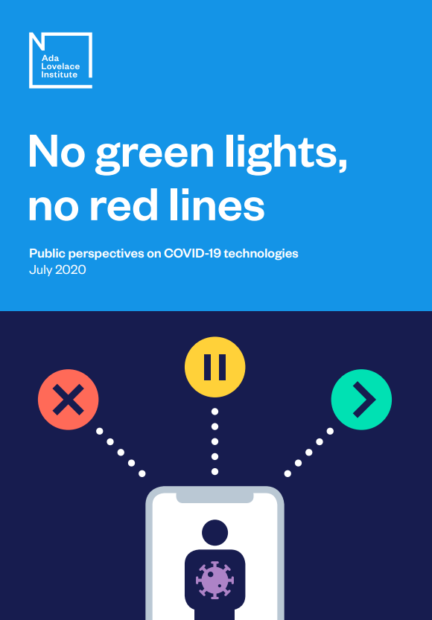No green lights, no red lines
Taking relevant insights from three Ada Lovelace Institute public deliberation projects.

No green lights, no red lines: Public perspectives on COVID-19 technologies, published in July 2020, took relevant insights from three Ada Lovelace Institute public deliberation projects: the Citizens’ Biometrics Council and Community Voices workshops, delivered in partnership with Hopkins Van Mil, and a rapid online deliberation, delivered in partnership with Traverse, Involve and Bang the Table. The aim of the report was to assist Government and policymakers navigating difficult dilemmas when deploying data-driven technologies to manage the pandemic, and when judging what risks are acceptable to incur for the sake of greater public health.
Drawn from three public engagements, No green lights, no red lines: Public perspectives on COVID-19 technologies takes lessons to assist Government and policymakers navigating difficult dilemmas when deploying data-driven technologies to manage the pandemic
Policy impact
Even before its findings and recommendations have been fully reported, insights from the Council have drawn attention from key stakeholders, including policymakers, regulators, legal researchers, technology developers and law enforcement bodies.
These stakeholders have attended workshops as experts and observers, and have expressed the value that the Council’s deliberations will have for shaping and influencing action on biometrics policy and practice.
The Council members also reported the value of participating in the process, commenting that they enjoyed taking part, were well-informed through the debates and felt as though their perspectives mattered.
Related content

No green lights, no red lines
Lessons to assist Government and policymakers navigating difficult dilemmas when deploying data-driven technologies to manage the pandemic